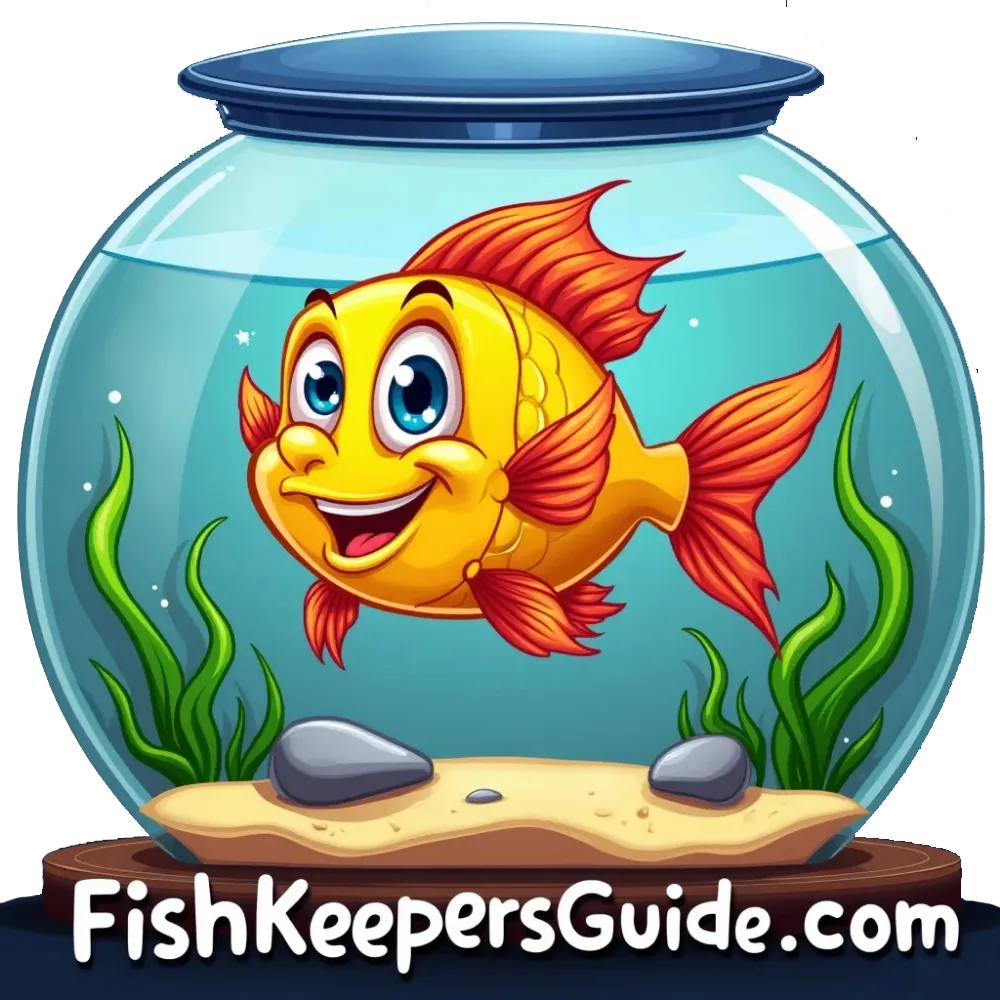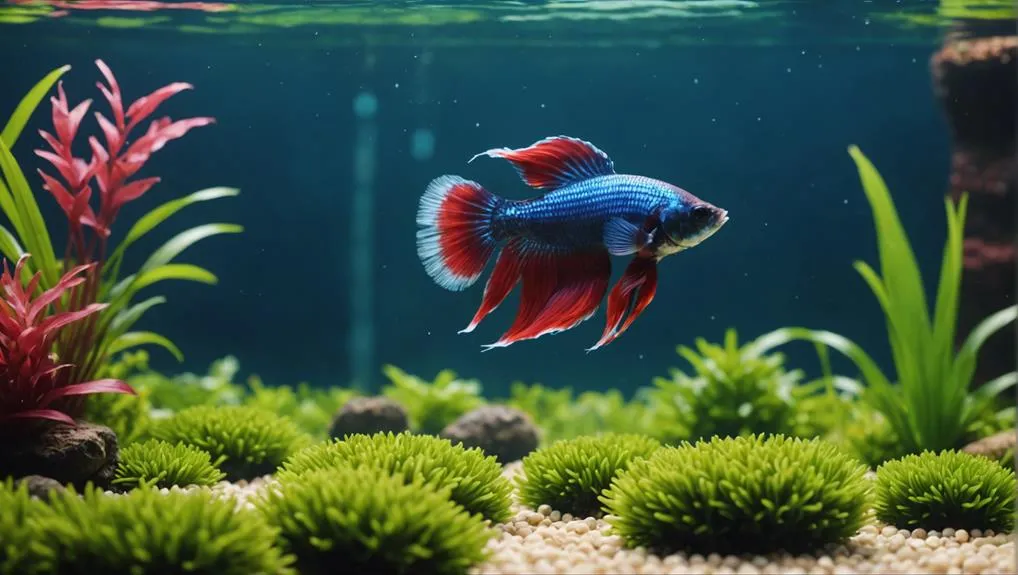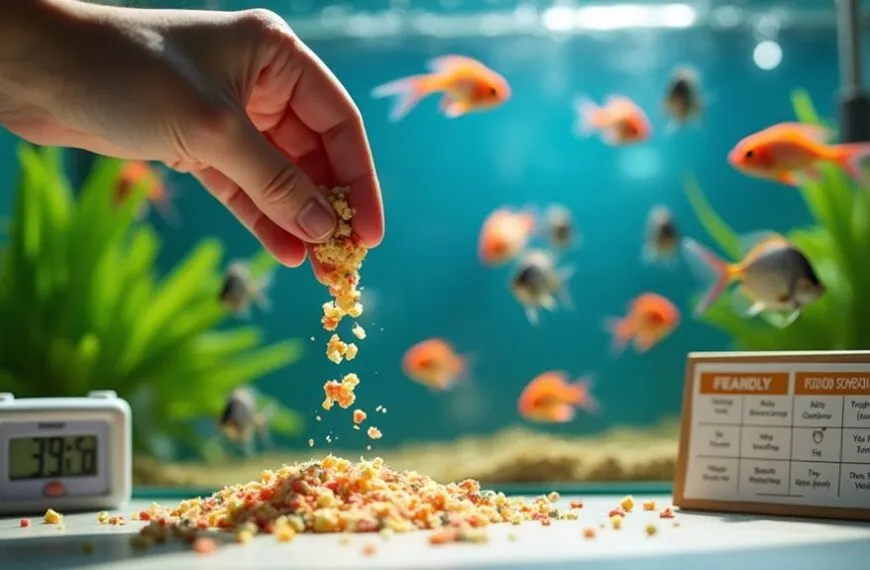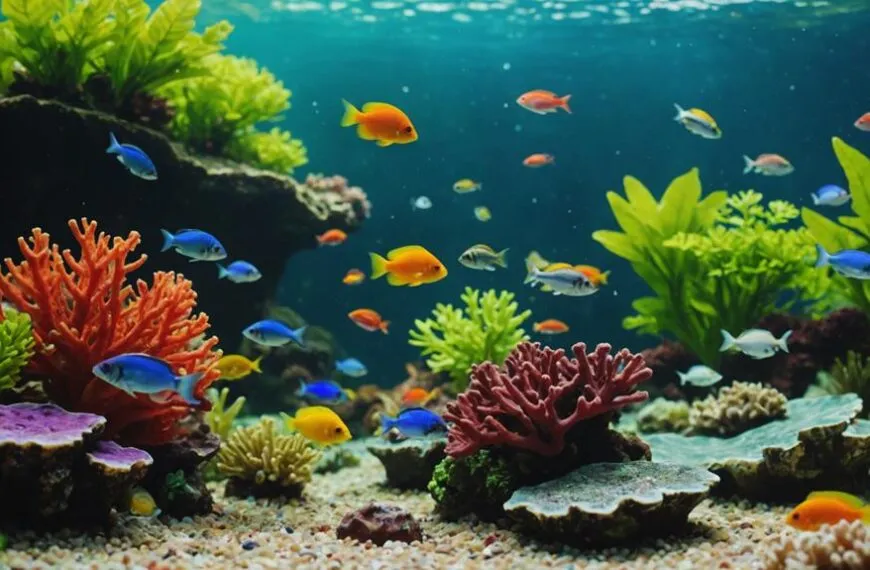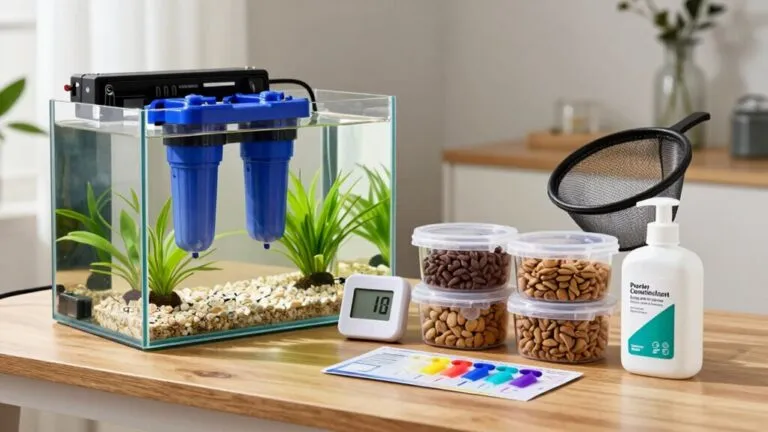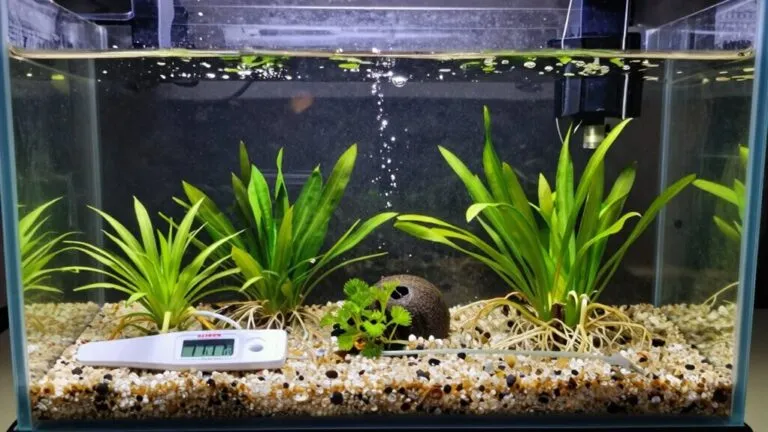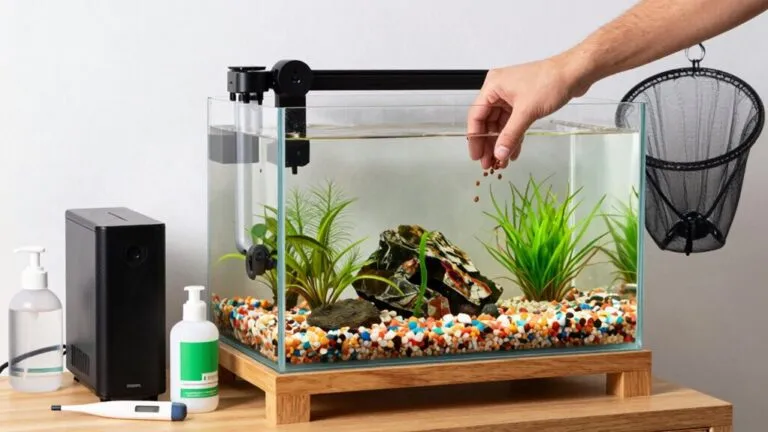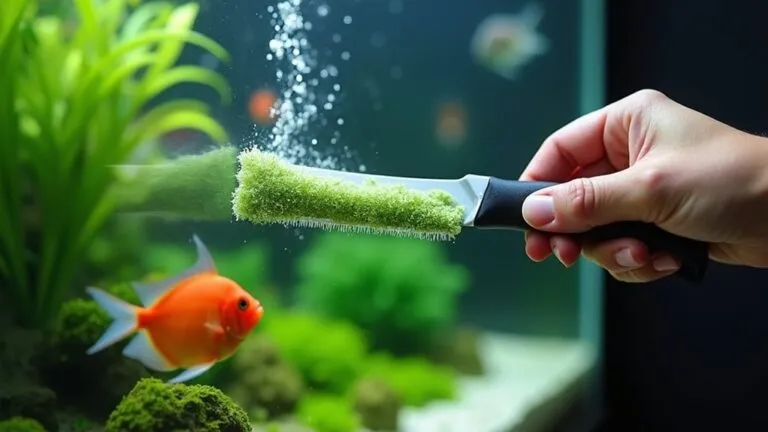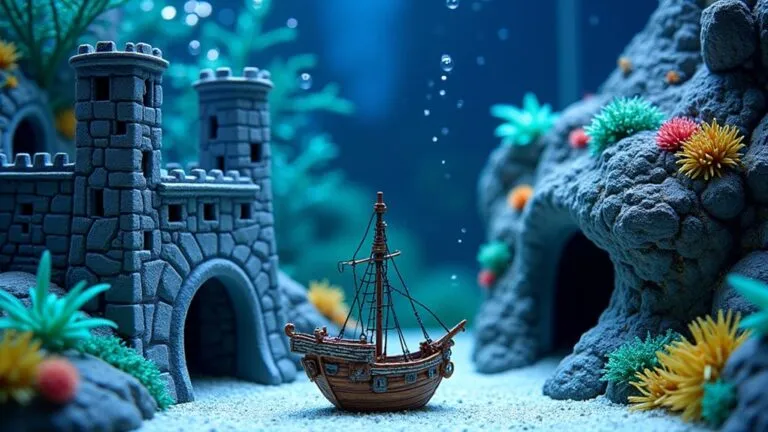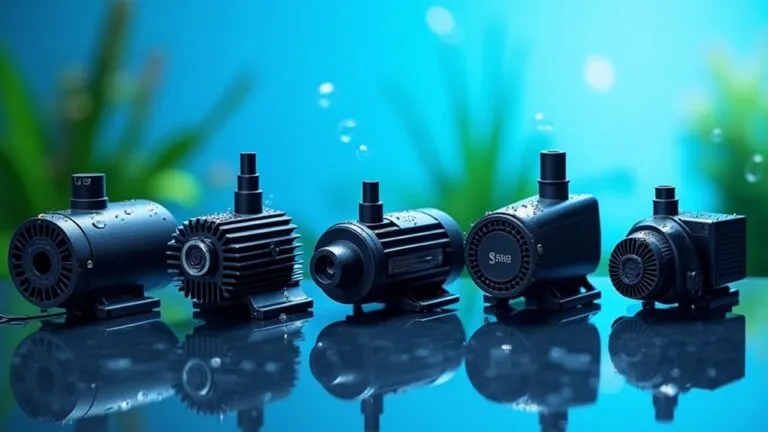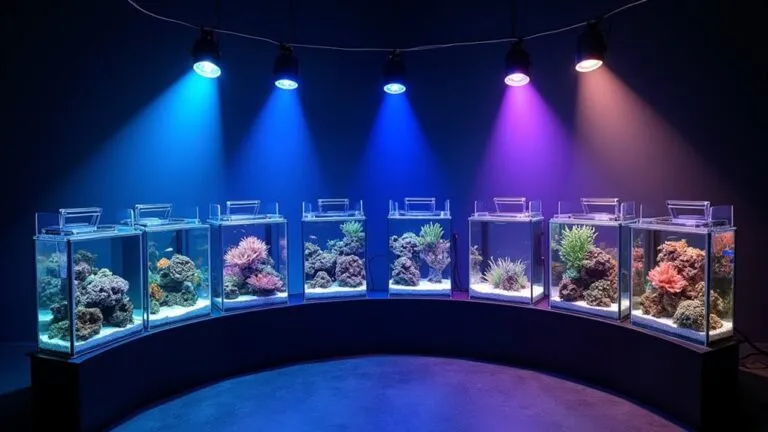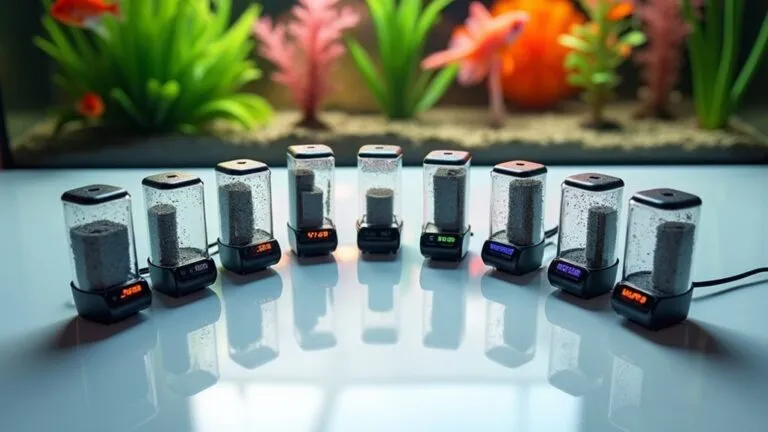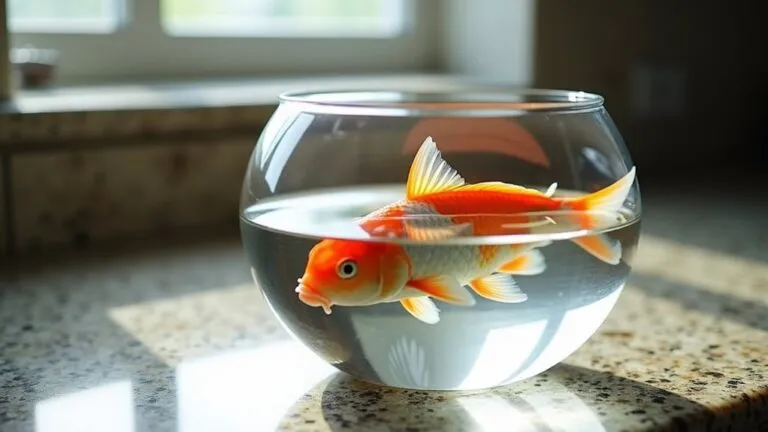Feeding your betta fish can be a fun experience if you follow a few simple tips! First, stick to a schedule by feeding them once or twice a day, and don't forget a weekly fasting day to keep their tummies happy. Opt for high-quality pellets with lots of protein—think of it as their version of a gourmet meal! Always monitor portion sizes, offering just 4 to 6 pellets per feeding. Variety is key, so mix in some live or frozen foods for excitement. Lastly, keep things clean by removing any uneaten food quickly. There's always more to explore about betta care!
Contents
Establish a Feeding Schedule
Establishing a consistent feeding schedule is crucial for your betta fish's health and happiness. When you feed your betta fish, aim for once or twice a day, which helps mimic their natural behavior.
It's important to remember that betta fish thrive in optimal conditions, including a temperature range of 78-82°F, which supports their metabolism and feeding habits. You'll want to provide the right amount of food—think about the size of your betta's eyeball. Generally, 4 to 6 pellets per feeding is just right.
Watch out for overfeeding your betta, as it can lead to health issues like bloating. To keep things balanced, consider implementing a fasting day once a week. This helps your fish digest and prevents uncomfortable problems.
Don't forget that every betta is unique! Adjust the feeding frequency based on your betta's individual appetite and activity level. More active bettas might need a bit more food, while less active ones may not.
Make it a habit to monitor your betta's eating habits and overall health. By keeping an eye on their behavior, you can ensure they're sticking to a healthy diet. Remember, a well-fed betta is a happy betta, and you're doing a fantastic job by caring for them!
Additionally, providing a varied diet, including high-quality flakes and occasional live foods, can enhance their overall well-being and coloration, making them even more vibrant in your aquarium ideal water conditions.
Choose Quality Foods
Choosing quality foods for your betta fish is essential to their health and vitality. These vibrant tropical fish thrive on a diet rich in high protein. Look for high-quality pellets that contain at least 30%-40% crude protein to keep your betta strong and lively.
You wouldn't want to serve them filler ingredients like soy or rice, as these can lead to digestive issues and aren't nutritionally beneficial. Additionally, bettas require a well-maintained environment, including a suitable tank size and decorations, to reduce stress and enhance their appetite, which can ultimately improve their feeding habits simple fish for beginners.
To truly pamper your betta, consider a varied diet! Incorporate live or frozen foods such as bloodworms and brine shrimp. These delicacies not only mimic their natural diet but also promote overall health.
When you check the ingredient list, prioritize foods rich in animal-based proteins and essential nutrients while steering clear of artificial additives.
Don't forget to rotate food types regularly! This simple step helps prevent dietary deficiencies and keeps their immune system in tip-top shape.
Monitor Portion Sizes
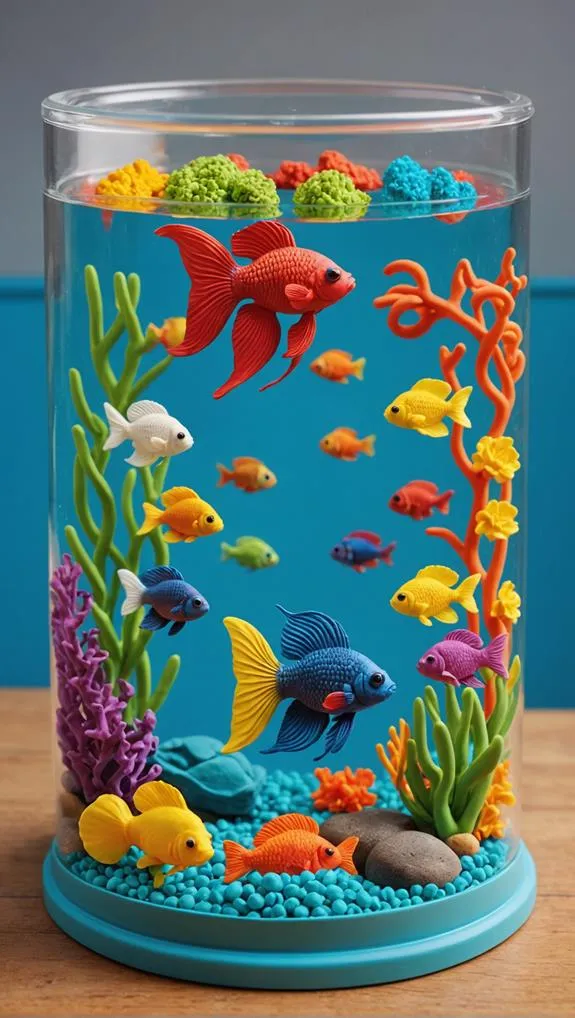
Monitoring portion sizes is crucial for keeping your betta fish healthy and happy. When it comes to feeding, you want to ensure you're not overfeeding your little buddy. Aim for about 4-6 high-quality betta pellets per meal, roughly the size of your betta's eyeball.
Adult bettas generally need around 1.8 grams of food daily but adjust based on their appetite and activity. It's important to remember that bettas thrive in well-maintained environments, and their diet plays a significant role in their overall health; therefore, providing a balanced diet is essential.
Here are some tips to help you monitor portion sizes effectively:
- Split meals into one or two feedings daily for better digestion.
- Remove any uneaten food promptly to maintain water quality.
- Keep an eye on your betta's behavior; it'll tell you if they're hungry or stuffed.
- Incorporate a weekly fasting day to promote digestive health and help you gauge ideal portion sizes.
- Consider the size and activity level of your betta when determining their food needs.
Incorporate Variety
To keep your betta fish healthy and engaged, it's essential to incorporate a variety of foods into their diet. Bettas thrive on diversity, so don't just stick to one type of food! Aim to introduce options like live food, frozen food, and high-quality pellets at least once a week.
Live foods such as bloodworms, brine shrimp, and daphnia aren't just tasty treats; they provide essential nutrients and encourage natural feeding behaviors. Rotating your feeding options prevents boredom and keeps your betta excited at mealtime.
Focus on protein-rich foods to ensure their diet remains balanced. While freeze-dried foods can be convenient, limit their use to just one or two times a week to avoid digestion issues.
You can also incorporate nutrient-rich foods with Omega-3 fatty acids to really enhance your betta's vibrant colors and beautiful fins. Just imagine how stunning your little buddy will look with a varied, nutritious diet!
Maintain Cleanliness
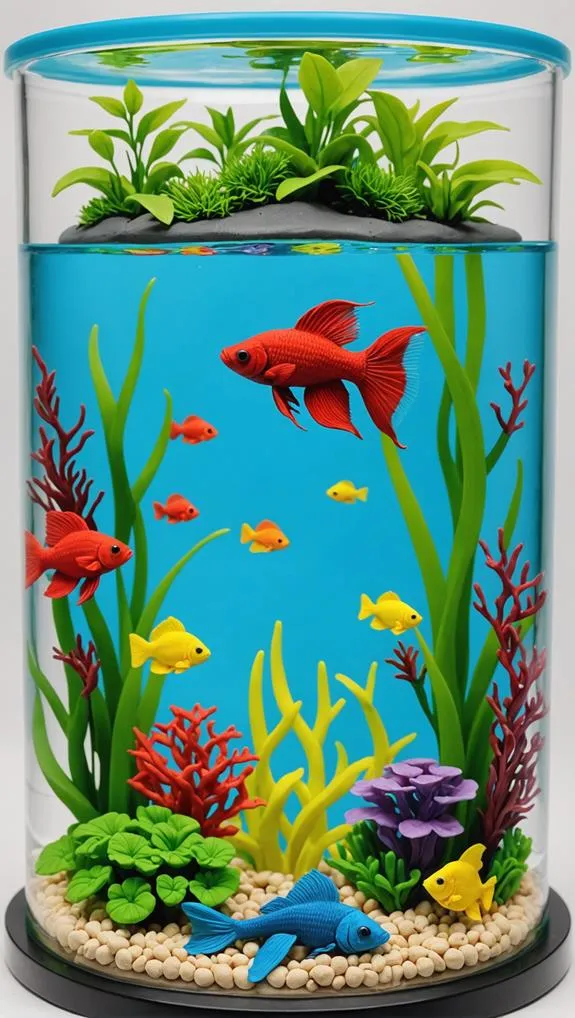
Maintaining cleanliness in your betta fish tank is crucial for their health and well-being. A clean environment not only keeps your betta happy but also prevents issues that could arise from poor water quality.
Here are some tips to help you keep things sparkling:
- Remove any uneaten food promptly after feeding to prevent bacterial growth.
- Regularly clean the feeding area, as leftover food can lead to poor water conditions.
- Set up a weekly cleaning routine, replacing 10-15% of the tank water.
- Use a fish net or turkey baster to scoop out waste and leftover food.
- Monitor consumption closely to avoid overfeeding, which can mess with water quality.
Frequently Asked Questions
How to Properly Feed a Betta Fish?
To ensure your betta fish thrives, focus on a balanced diet. Feed high-quality pellets daily, and incorporate live or frozen options weekly. Monitor feeding habits and adjust as needed to maintain optimal nutrition and health indicators.
How Much Should You Feed a Betta Fish Each Day?
Did you know a betta fish can consume about 1.8 grams daily? To meet their nutritional needs, stick to 5-8 appropriately sized pellets or frozen foods, adjusting portion size based on their feeding habits and water quality.
How Do I Know if I'm Feeding My Betta Enough?
To know if you're feeding your betta enough, watch for hunger indicators like activity levels and interest in food. Monitor for bloating issues and adjust portion sizes, ensuring dietary variety and maintaining optimal tank conditions.
How Many Hours Should I Wait to Feed My Betta Fish?
Isn't it fascinating how a feeding schedule impacts your betta's health? Wait 6-8 hours between feedings, observing hunger signs and adapting based on tank size, water temperature, and dietary variety for optimal nutrition balance.
Final Thoughts
Feeding your betta fish doesn't have to feel like a daunting quest, like hunting for the Holy Grail. By sticking to a schedule, picking quality foods, and keeping things clean, you're setting up your finned friend for a happy, healthy life. Remember to mix it up with different foods so your betta feels like a king in a royal banquet! With a little care and attention, you'll both enjoy this journey together, swimming in harmony.
